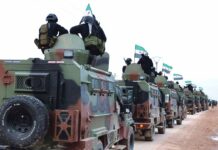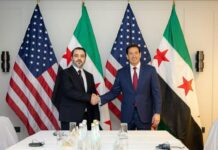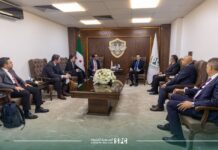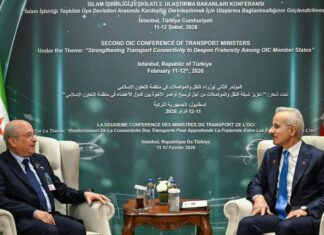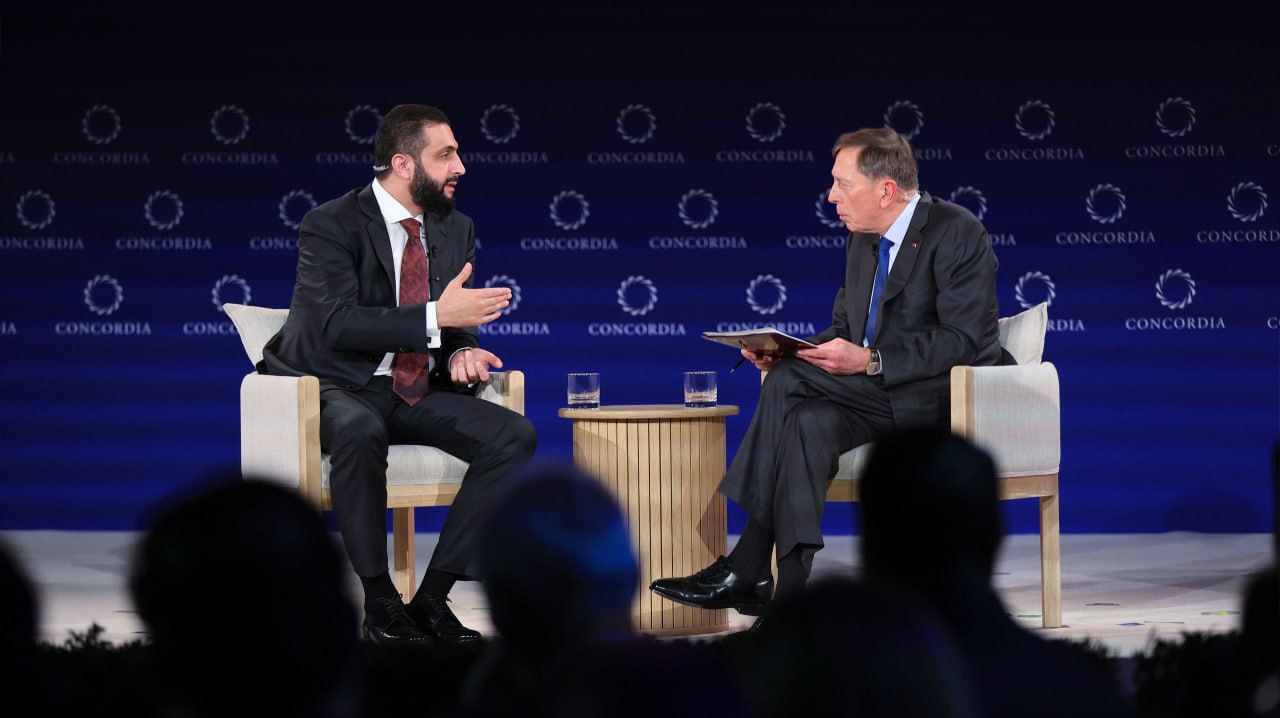
Syrian President Ahmad al-Sharaa joined former US Gen. and CIA Director David Petraeus for a public discussion at the annual Concordia Summit in New York, held alongside the 80th session of the United Nations General Assembly. The exchange marked one of Sharaa’s most high-profile international appearances since taking office after the fall of Bashar al-Assad’s regime last year.
Sharaa described Syria’s transition as a move “from battlefields to arenas of dialogue,” calling the Syrian people’s struggle “a noble and just cause.” He said the new government’s priority is protecting civilians and consolidating authority under state institutions, stressing that restricting weapons to official forces is key to stability.
Leadership and Military Strategy
Reflecting on the war, Sharaa credited optimism, timing and sound tactics and strategic planning for the revolution’s success. He said revolutionary forces confronted “Russia, Iran, Hezbollah and a variety of factions” throughout the conflict before advancing on Damascus. Institutions established in Idlib, he noted, provided a foundation for governance once Assad was deposed.
“We reached Damascus with minimal losses,” Sharaa said, highlighting the importance of combining military planning with sound preparation and popular support noting that the Syrian people themselves supported and eased their advance.
Economic and Political Priorities
Sharaa emphasized economic recovery as central to Syria’s future, linking development to long-term security. He welcomed the temporary suspension of some US sanctions by President Donald Trump in June but said congressional action is needed for full relief.
“Our priority is achieving security and stability by unifying the Syrian people and land, while advancing economic development,” he said. Sharaa added that Syria would continue investigating wartime abuses, citing new fact-finding committees and cooperation with a UN investigative team.
Relations With Israel and Regional Security
On regional tensions, Sharaa said Syria seeks calm relations with all countries, including Israel. He cited over a 1,000 Israeli strikes in recent months and repeated incursions into Syrian territory but said his government aims to avoid war.
“The occupied Golan Heights are Syrian territory, recognized by the United Nations,” he said, while noting that Syria is open to talks addressing Israel’s security concerns. He added that advanced discussions are underway on an agreement building on the 1974 disengagement accords.
“The ball is in Israel’s and the international community’s court to determine the real paths we should take,” Sharaa said.
Balancing Accountability and Unity
Acknowledging divisions left by 14 years of war, Sharaa rejected quotas in political representation but called for broad-based partnership. He revealed over 250,000 Syrians remain missing and 1 million were killed during the conflict, underscoring the scale of loss.
“We are moving rapidly toward building a new Syria,” he said, adding that those responsible for attacks on civilians in Suwayda and the coast would be held accountable, regardless of affiliation.
The Concordia session with Petraeus signaled Syria’s intent to reintroduce itself on the world stage while addressing unresolved security questions at home and abroad.

